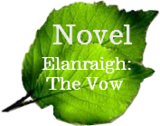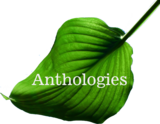I was struck by something English author,
Mary Stewart, said in an interview
conducted not long before her death this year. She states that she had once
spent a week laboring over a particular (descriptive) paragraph to get it just
right.
 This, I can well believe. Her writing is
lyrical and lovely—it was her Merlin
Trilogy that I first discovered back in the 80’s, and have since re-read
many times, that made me sit back and say to myself, I want to be able to write like that…
This, I can well believe. Her writing is
lyrical and lovely—it was her Merlin
Trilogy that I first discovered back in the 80’s, and have since re-read
many times, that made me sit back and say to myself, I want to be able to write like that…
On the other hand there are those whose
writing style is taut, crisp and even minimalist. (I’m in awe of, and respect
this, but can’t/wouldn’t enjoy writing it).
I want
to believe there is still readership for both
styles…or is the more lyrical style now archaic, belonging back in the age of
“reading by firelight,” whereas today, everyone reads in nano-bites off their
smart phones between bus stops, on coffee breaks and during the kid’s dance
class.
Another author I read, Anne Rice, (Vampire
Chronicles especially) favours a “lush” prose style, and certainly has a huge
following. (Of course she has well-developed and intriguing characters as
well.)
Every writer learns early that writing
evocative prose does not mean adding in endless adverbs—we’re discussing a
poetic style—poetry being the minimal amount of words needed, that with sound
and imagery, create an emotional response.
OK. So I threw this question out to writer
friends at SF Canada, and it started a lively discussion.
Most confirmed that they can and do enjoy
reading stories written in either
style, providing the style suits the
story.
For author, Eileen Kernaghan, “the setting, the
time period and the voice of the character who is telling the story, all help
to determine the style.”
Susan
Forest , speculative fiction author, reminds us that, “a single work can
have both— A Song of Fire and Ice, by
George RR Martin gets on with the story, but he also takes the time to place
you in his world, with the people. The writing is very lyrical, but he doesn’t
sacrifice story.”
Dave
Duncan, author of more than forty novels, expresses his opinion that,
“…your own style is so much a part of you that anything else will seem faked…if
your story flows so smoothly that no reader notices what your style is, well,
that’s pretty magical too!”
Matt
Hughes, on the other hand (ever ambidextrous :) states that he can suit his
style of writing to the material, and
the effect he’s trying to
create—whether a moody “Bradbury” piece, or hardboiled 1950’s pulp-voiced
style.
Noah
Chinn, author and “adventurer”, writes that he is,“ a fan of both styles,
it depends in part on the intent of the
author.” He remarks that he would classify Ray Bradbury as lyrical.
“Passages of his just wash over me, evoke images and chills…but sometimes the
story is the thing and being more bare-bones is exactly what you need.”
Ira
Nayman, humorist extraordinaire, says “Most of my favourite authors use
language in wildly entertaining ways” and he adds, “The great thing about the
multiplicity of books is that we can enjoy (and learn from) a wide variety of
styles of writing…There really are no
rules in artistic creation, only what works to entertain.”
Barbara Geiger,
who describes herself as, “Writer of dark, redemptive, snarky smut” came up
with one of those Aha! insights she’d
acquired from colleague Susan Forest after a writer’s session Susan had attended,
“The sooner the writer puts their narration in the character’s skull and has
the character filtering everything, the reader will be pulled along from start
to finish:
There is no description, there is only Point of View.”







